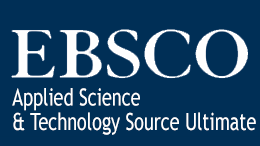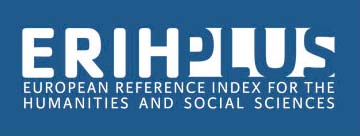Ethical Principles and Publication Policy
Düzce University Journal of Technical Sciences observes the publication ethics standards and principles that must be followed in academic studies regarding publication ethics. All articles that do not comply with ethical standards will be removed from publication. This includes articles that have been accepted for publication or that are found to have ethical violations after publication. Within the scope of publication ethics, all stakeholders are expected to fulfill their ethical responsibilities.
Ethical Responsibilities of Authors:
- Articles submitted for evaluation must not have been evaluated and/or published elsewhere. Submitting the same article to more than one journal at the same time is unethical publishing.
- Quoted texts must be indicated with reference to the source.
- Authors of the article submitted for evaluation declare that they have not committed any form of plagiarism, that the article is their own original study, that all responsibilities and ethical violations arising from plagiarism belong to them, and that the journal has no responsibility in this regard.
- All authors who contributed to the article submitted for evaluation should be stated, and it should be known that all named authors have equal responsibility for the article. The corresponding author represents all authors in the evaluation process regarding the article. In addition, all authors acknowledge that they have authorized the corresponding author to take responsibility for all parts of the article on their behalf.
- Authors are responsible for declaring all organizations supporting their submitted work, all financial sources, or any conflicts of interest.
- Access to the data in the article should be provided if deemed necessary. Authors are deemed to have declared that they will fulfill these obligations in the study submitted for evaluation.
- For publications that require copyright, copyright rules, permission documents in cases where legal/special permission is required, photographs, tables, scales, etc. belonging to others, all necessary documents must be specified and/or referenced.
Similarity Rate Information Note:
- All articles submitted for evaluation in our journal must have a similarity report obtained from intihal.net. Click here for detailed information about the similarity report. The similarity report rate must be at most 20% excluding references.
Ethical Responsibilities of Reviewers:
- Reviewers are responsible for not evaluating the article and reporting any conflict of interest or relationship with the study and/or authors.
- Reviewers must keep the work they receive confidential and cannot use the information they obtain from the reviewing process for their personal benefit.
- Reviewers keep confidential all processes from the acceptance stage of the article to the publication process, and they cannot use or share the information and documents obtained.
- Reviewers are responsible for reporting any unethical situations related to the study to the editor.
- Personal criticisms of the authors should not be made, and evaluations should avoid individual feelings and thoughts and should use an impartial, honest, kind and constructive language, taking into account scientific principles and fundamentals.
- During the article reviewing process, reviewers must take care to ensure that the personal information of the authors (gender, nationality, religious beliefs, political views, etc.) does not affect the scientific evaluation and they must be aware that they are legally responsible for the situation.
Ethical Responsibilities of the Editorial Board:
- In the studies that will be and/or are likely to be included in the reviewing process, the studies should include the studies that have high originality and have been prepared in accordance with the journal's objectives and ethical rules. Care should be taken to invite reviewers related to the subject of the study, and the decision-making process should be carried out with an objective perspective in accordance with ethical rules, taking into account detailed and meticulous evaluations.
- It should provide the necessary contribution to the evaluation process by ensuring coordination between reviewers and authors, paying attention to confidentiality and ethical rules during the evaluation process.
- Editors are responsible for taking precautions against any conflicts of interest or conflicts that may arise between authors, reviewers and third parties to ensure that the reviewing process of articles is completed impartially and independently. The decision should be based on the accuracy, relevance and importance of the article and its relevance to the scope of the journal. Ethical values and legal requirements regarding copyright infringement, libel and plagiarism should also be taken into account. Editors are also responsible for providing clear and informative responses to complaints from reviewers, authors and readers.
- The editor or any editorial board member should not disclose information about a manuscript to anyone other than the corresponding author, referees, potential reviewers, other editorial advisors, and the publisher.
- Unpublished materials disclosed in a submitted article should not be used in the editor’s or editorial board’s own research without the author’s express written permission.



